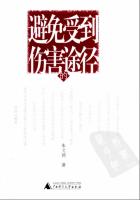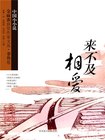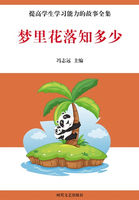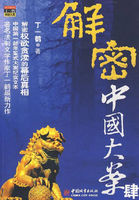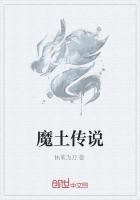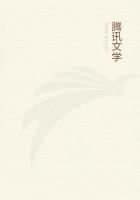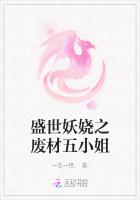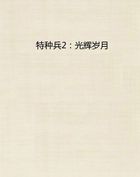The Man in the Zoo
In the zoo image of Slaughterhouse-Five, the displacement of the signifed is more complete—there seems no animal in the zoo。 The animal seems to have truly become“absent referent”in this metaphor。However, the animal is not absent。It is only not what we customarily know of as the“animal”—the nonhuman animal。What happens in the novel is that the animal in the limited use of the word, its anthropocentrically biased usage, is replaced by a human being, whose status as an animal species is often ignored。Therefore, whereas humans are“like”slaughtered animals in the war, in the Tralfamadore zoo the human“is”the animal。
Billy Pilgrim is the animal, a specimen of an exotic species to the Tralfamadorians-the Earthlings。 As in the case of the slaughterhouse, the zoo in which he is put on display is real。Every detail of the deion about the Tralfamadore zoo points to the Earthlings'modern zoo。Even for the reader who has the minimum experience of zoo visit, it is not hard to grasp the mocking allusion in the Tralfamadore zoo to that of the human community:
Billy was displayed there in the zoo in a simulated Earthling habitat。 Most of the furnishings had been stolen from the Sears Roebuck warehouse in Iowa City, Iowa。There was a color television set and a couch that could be converted into a bed。There were end tables with lamps and ashtrays on them by the couch。There was a home bar and two stools。There was a little pool table。There was wall-to-wall carpeting in federal gold, except in the kitchen and bathroom areas and over the iron manhole cover in the center of the foor。There were magazines arranged in a fan on the coffee table in front of the couch。
There was a stereophonic phonograph。 There phonograph worked。The television didn't。There was a picture of one cowboy killing another one pasted to the television tube。So it goes。
There were no walls in the dome, no place for Billy to hide。 The mint green bathroom fxtures were right out in the open。Billy got off his lounge chair now, went into the bathroom and took a leak。The crowd went wild。(SF 112)
The mechanic repetition of the“there be”sentence structure in the deion intensifes the unreality and artifciality of the zoo environment。 The carefully chosen furniture, real as it mostly is, serves only as a token for the real, a simulacrum of the Earthling home。The magazines arranged in a fan on the coffee table and the picture pasted to the television to imitate the show of a program hilariously mocks the pretended reality of the whole setup。It is more for the fun of the spectator than for the necessity of the zoo animal。It easily calls to mind the artificial environment in the Earthling zoos that is often set to create an illusion of reality:the dead branches of a tree for monkeys, artifcial rocks for bears, pebbles and shallow water for crocodiles, white washed walls and foating chunks of ice for penguins……Behind the simulacrum of the natural habitat is the cruel reality that these animals, like Billy Pilgrim, can enjoy freedom only within the limits of confnement and are utterly dependent on their keepers。“Escape was out of the question。The atmosphere outside the dome was cyanide, and Earth was 446,120,000,000,000,000 miles away”(SF 112)。Taken thousands of miles away from their natural habitats, the animals may be likewise put in a place where the natural environment is fatally alien and hostile, not to mention the agony caused by the separation from family and community。
In such an environment Billy moves around, naked, doing everything in full view to the gazing crowd outside。“The Tralfamadorians were interested in his body—all of it”,and“[m]ost Tralfamadorians had no way of knowing Billy's body and face were not beautiful。 They supposed that he was a splendid specimen”(SF 112,113)。There is a guide explaining what Billy is doing and why。All of this again is highly allusive to the common scene in the modern zoo:the visitors'rude curiosity and inquisitiveness on the one hand, the animals'lethargy, anxiety, and sullenness on the other。Here we may also recall Vonnegut's experience with the zoo in Dresden and the miserable fates of the zoo animals after the firebombing:“The Dresden zoo, blown open by direct hits, had released its ark of animals into the wild。The men spotted a llama mounting slopes of debris。Exotic birds, with no trees to sit in, preened themselves on twisted iron railings。Achimpanzee, once popular with children, sat alone without hands”(Shields 71)。In the novel, the narrator does make a note that“there was a zoo”when Billy frst enters Dresden。So as is said earlier, Vonnegut may well have in mind the realistic zoo in mind when he was working on the fabrication of the Tralfamadore zoo for Billy。
By placing the protagonist into a zoo cage, Vonnegut creates a unique case of transformation。 Instead of actual physical transformation, a transposition of roles takes place—the human becomes the animal and the object of gaze。In this way, he throws light on the rudeness and irreverence of the human gaze at zoo animals, the cruelty and selfshness in taking the animals away from their native habitats and putting them in long-term confinement, and the foolishness for humans to believe that the specimen in the zoo is representative of the whole of its species。Here Vonnegut demonstrates an insight that is quite close to that of many animal-studies scholars。John Berger believes that zoo animals are the objects of the imperial gaze people turn on wild animals, in which one's alienated distance is proportionate to one's power so that“[i]n the zoo, the view is always wrong。Like an image out of focus。[……]However you look at these animals,[……]
you are looking at something that has been rendered absolutely marginal”(1980:22)。While Yi-fu Tuan agrees that the zoo provides visitors an opportunity to appreciate the variety and splendor of nature, he believes that zoos also allow visitors“to feel superior to the caged beasts and to acknowledge aspects of behavior, such as eating and copulation, that they fnd disturbing and faintly disgusting when practiced by themselves”(80)。Randy Malamud expresses even stronger critique in his exhaustive analysis of zoo stories in Reading Zoos(1998)。According to him, zoos distort people's perception of animals and are a spectacle of imperialist or neocolonial power:“Rather than fostering an appreciation for animals'attributes, zoos convince people that we are the imperial species”(1998:2)。
In the portrayal of the Tralfamadore zoo, Vonnegut literalizes the tension around the modern zoo。 The Tralfamadorians'view of Billy as an Earthling specimen is distorted。They don't see human beings as two-legged creatures, but as great millepedes—“with babies'legs at one end and old people's legs at the other”(SF 87)。They constantly display a sense of superiority to Billy, reminding him from time to time how stupid he is by closing their little hands on their eyes。When Montana is kidnapped and taken to the zoo to make Billy a mate, the Tralfamadorians demonstrate the strongest case of voyeurism:“All attendance records for the zoo were broken。Everybody on the planet wants to see the Earthlings mate”(SF 132)。Montana's piecing and prolonged screams upon seeing the big, gazing crowd outside the dome remind us of the humiliation and suffering zoo animals must have felt in our zoos。All of the Tralfamadorian behavior toward Billy have human counterpart on Earth—maybe with the exception that when they see how scared Montana is, the Tralfamadorians have a blue canopy dropped over the dome, creating artifcial night and privacy for Montana and Billy。In this sense, the Tralfamadore zoo seems to be more humane than the Earthling one。In a word, being treated as an exotic animal, Billy Pilgrim plays the role as the spokesperson for the sufferings of the nonhuman animals in the human world。
Vonnegut gives the zoo image one more twist, though。 He does not simply follow the animal rights logic that zoos are morally indefensible because animals are not treated as individuals with independent value, but only used to serve certain purposes, whether educational, entertaining, conservational, or scientific。He follows it halfway and then makes a surprising turn:despite the loss of freedom and privacy, Billy enjoys his life in the zoo。When asked by the Tralfamadorian spectators whether he is happy there, Billy answers:“About as happy as I was on Earth”(SF 114)。This seems true。Thanks to the Tralfamadorians'favorable misconception of his physical appearance, Billy for the frst time“begins to enjoy his body”,doing all kinds of exercises daily to keep it fit。It is also in the zoo that Billy has the frst experience of“heavenly”sexual life and even has a baby with Montana。More importantly, Billy becomes very communicative and eloquent in the zoo, which is in sharp contrast to his wartime dumbness and inarticulateness。He volubly exchanges opinions with the Tralfamadorian guide and is willing to talk with his“arranged wife”Montana about his war experiences。According to Tom Ragan, zoos are only justifable when it is“in the best interests”of the captured animal(S。Armstrong 455)。Billy's experience seems a good example of such。But what Vonnegut intends to do is not to lend support to the zoo(although this might be a concern, as the zoo truly is an ambiguous issue in its functions),but to put in sharp relief the unbearable condition of life on Earth。
Life on Earth is no better than life in the Tralfamadore zoo—this is the implied meaning in Billy's answer to the Tralfamadorian's question。 When we consider the kind of life he lives on earth, before, during, and after the war, it is not hard to see his point。As a child, Billy is constantly put in fear of overwhelming death, such as in his experience of learning to swim by his father's method of“sink-or-swim”(SF 42),and when he stands on the verge of the Grand Canyon。Wartime experience is only worse。As a young man at the end of childhood, he is thrown into the chaos of war and becomes completely at a loss, as preposterous as a“flthy famingo”(SF 53)。Unstuck in time, Billy shares an unfortunate fate with Hamlet。Both young men realize that the time is“out of joint”,but while the Shakespearean hero seeks to set things right, Billy gives himself in to the time warp and everything that comes at him。After he finally gets warm clothes and shoes for himself in the German prison camp, Billy fnds himself turn into a clown, with silver boots, a muff, and a toga made of a piece of azure curtain(SF 147)。
Life becomes a joke, but there is no light-hearted laughter。It is a life in death, meaningless, purposeless, and hopeless。Even when he becomes a well-to-do optometrist after the war, Billy is not happy。His rich, obese wife brings him success and wealth but cannot reach his heart。Later, his bossy daughter treats him as a childish old fart。Nobody truly understands the pain he lives with in the shadow of the war。Like Dwayne of Breakfast of Champions, despite all the money he makes and all the clubs he belongs to, Billy is lonely。Besides, even in peacetime, violent, unnatural deaths seem an inevitable reality。Billy's father is killed by a friend while hunting, his wife dies from carbon monoxide in her own Cadillac crashed and shattered in her rush to see Billy at the hospital after an air crash;the young veteran elevator driver dies squashed in the elevator car he drives because his wedding ring is caught in the ornaments of the elevator door(SF 9)。All these deaths are uncanny and horrible, illustrating the general absurdity of human existence。
On the macrocosmic level, the Tralfamadore zoo, like the Dresden slaughterhouse, serves as a metaphor of irony and satire,“a sort of looking-glass extension of Earth”(McNelly 93)。 Placed on another planet, the zoo creates a necessary distance and a cosmic perspective for the observation of the human world, in the same way as the Houyhnhnms serve for Gulliver。According to Robert Scholes, science fction is“fction that offers us a world clearly and radically discontinuous from the one we know, yet returns to confront that known world in some cognitive way”(29)。In Slaughterhouse-Five, the creation of the Tralfamadore zoo enables Vonnegut to distance himself from Earth and makes an observation of his own race。He is enabled to face problems he cannot otherwise face directly, to make a more general critique of humanity, and to search for answers to the eternal questions such as“What in heck should we be doing?What in heck is really going on?”
First of all, the assumed supremacy of human beings is relentlessly attacked。 Seen in the eyes of the Tralfamadorians, the Earthlings are nothing more than a species in the vast universe and are by no means the smartest。Their perceptions of time and mortality are ridiculously limited。As the zoo guide explains to his audience, Billy, the poor Earthling, is such a creature whose head is encased in a steel sphere which he could never take off。
There was only one eyehole through which he could look, and welded to that eyehole were six feet of pipe。
[……]
He was also strapped to a steel lattice which was bolted to a fatcar on rails, and there was no way he could turn is head or touch the pipe。 The far end of the pipe rested on a bi-pod which was also bolted to the fatcar。All Billy could see was the little dot at the end of the pipe。He didn't know he was on a fatcar, didn't even know there was anything peculiar about his situation。(SF 115)
In this screamingly funny and ridiculing deion, we are led to realize, in annoyance and unease, how limited and“structured”the human vision is, and yet how foolishly complacent we are at the same time。 As the zoo guide shows his audience, with the head entrapped in the cage and all movement confned and controlled on a running fatcar, we never come to the awareness that there might be something wrong with what we see or the way we see。Instead, we comfort ourselves by saying:“That's life”(SF 115)。
Even the assumption that humans can be critically bad and dangerous is deflated。 When Billy Pilgrim speaks“soaringly”of the danger that“the Earthling combination of ferocity and spectacular weaponry might eventually destroy part or maybe all of the innocent Universe”,the Tralfamadorians“close their little hand on their eyes”,a gesture that means“He was being stupid”(SF 115-6)。Earth, the Trafamadorian guide tells Billy, has nothing to do with the end of the universe, because it is the Tralfamadorians who blow it up, when they experiment with new fuels for their fying saucers(SF 116-7)。That is to say, even in the self-critical assumption that the Earthlings are as evil as can destroy the whole universe, there is too much pomposity。The Tralfamadorian fatalism would not allow even such illusions to go undisturbed。Thus the self-imposed supremacy of the Earthlings is contemptuously denounced。Down goes man from the sacred altar as the“paragon of animals”,where he has been upheld for centuries。Gone is the self-delusion as an especially favored species。Man is fnally brought down to earth, to come to terms with what he truly is。
Another delusion that Billy's extraterrestrial experience debunks is the belief that human beings are rational creatures and creatures of free will。 Upon being abducted onto the Tralfamadorian saucer, Billy's first question is:“why me?”He is immediately shown the foolishness of the question:“That is a very Earthling question to ask。……Why you?Why us for that matter?”(SF 76)He learns by and by that“there is no why”,and that people are all“bugs trapped in amber”(SF 77)。Even though the Tralfamadorians know how they will end the universe, they do nothing to prevent it because they believe“the moment is structured that way”(SF 117)。The Earthlings'insistence on rationalization is simply a fallacy。As the Tralfamadorian guide tells Billy, among the 31 inhabited planets that he visited,“only on Earth is there any talk of free will”(SF 86)。The lesson he teaches the Earthling is an elaboration of the discovery Winston Niles Rumfoord makes in The Sirens of Titan, the book where Tralfamadore frst appears, that“everything that ever has been always will be, and everything that ever will be always has been”(ST 20)。
When examining the function of science fiction in Slaughterhouse-Five, many critics agree that Billy's time travel and extraterrestrial experience are self-defense mechanisms for a man in face of the sheer horror of life。 In other words, the Tralfamadore does not truly exist but are fantasies in Billy's mind with which he takes refuge from his traumatic experiences。There is much validity in this understanding。As an innocent, sensitive, and awkward young man, Billy Pilgrim has encountered too much death and violence to live a normal life。It is only natural for himto seek shelter and consolation in illusions and fantasies, to“construct a world of his own”。But the fantasies are not entirely escapist in nature, I think。They are the refracted refection of the chaos and absurdity Billy is made to live with, and there is a continuation of Billy's desperate search for meaning that has been denied him in reality。The scene of Billy asking the Tralfamadorians“Why me?”,for example, is conspicuously parallel to a scene in the Nazi prison。
When one of Billy's fellow prisoners is beaten gratuitously by a German guard, the prisoner asks:“why me?”He is given a Tralfadadorian answer:“Vy you?Vy anybody?”(SF 91)The parallelism suggests that what perplexes Billy in real life continues to bother him in his illusive world。The lesson that the Tralfamadorian guide teaches him in the zoo is only a refection of Billy's attempt to make sense out of absurdity, to make a choice out of no choice, which, in turn, is a refection of Vonnegut’s desire to make sense of the chaotic and helpless human existence。As Merrill and Scholl have observed, Billy is one of those people Vonnegut is referring to when he says,“There are people, particularly dumb people, who are in terrible trouble and never get out of it, because they’re not intelligent enough。And it strikes me as gruesome and comical that in our culture we have an expectation that a man can always solve his problems”(WFG 258)。Overwhelmed with the demand to rationalize chaos, Billy can only“solve his problems by saying that they are insoluble”(Merrill 1990:146)。After all, he has to survive, and the need for supreme fction is a“very human trait”(Merrill 1990:146)。
Therefore, as in the case of the slaughterhouse, by portraying a character who enjoys a life as a zoo animal and who is resigned to fatalism and quietism, Vonnegut is not to endorse irrationality and nihilism, as many critics tend to believe, but to shock readers by means of defamiliarization into recognition of how absurd and dehumanizing the modern world is。
In both the two overarching formulations:“survivors in a slaughterhouse”and“the man in a zoo”,the distinction between the humanand the nonhuman is disturbed。 Rationality, the benchmark of humanity, is taken to task, not for the effect of total renunciation, but to point out the danger of an overdose of it and when it serves the purpose of evil。In the Dresden frebombing and the collection of horrid torture instruments, there is too much rationality at work behind their stunning brutality。Edgar Derby's remarks elucidate this when he confronts Campbell, who comes to the slaughterhouse to recruit men for the German military unit he invents,“The Free American Corps”(SF 162)。Derby calls Campbell a snake, but he immediately corrects himself, contending“that snakes couldn't help being snakes, and that Campbell, who could help being what he was, was something much lower than a snake or a rat—or even a blood-flled tick”(SF 164)。In this reasoning, the human/animal hierarchy is reversed。The key factor that renders the reversal is the human capability to make a choice, namely, his free will and rationality。In the words of John Simmons, it is exactly rationality that makes humans“inhuman”(Simons 126)。Nonhuman animals cannot be inhuman because they mainly act upon instincts and do not take on the rational thought processes that defne“inhumanity”。Thus, the rationality that conventionally denotes humanity as superior to the animal world becomes“a marker of this inhumanity”(Simons 126)and turns into a weapon against humanity itself。
Because of his brave confrontation with Campbell, Derby is accredited as a“character”in a characterless novel and the moment of his confrontation with Campbell is described as“the finest moment in his life”(SF 164)。 From these facts we can see the centrality of the critique of rationality and the concept of reversed hierarchy of the human-animal relationship in Vonnegut's philosophy。Are humans rational?Does rationality makes us a better species?
Are we really a superior species?Vonnegut's answers are hardly affirmative。As the Tralfamadorian view of the human perception implies, when we think we are making rational decisions and choices, our vision is actually extremely limited and misled。The steel case and thefatcar that confne and control our seeing are actually prejudices that we harbor in our mind。They can be racism, sexism, classism, or any other kind of ideology that defne and direct our ways of seeing。It is, in effect, a Vonnegutian version of William Blake's famous metaphor—“the mind-forged manacles”。The result of such limited vision, on the one hand, is the blocking of a larger, more vibrant and diversifed world, like the mountain range, the desert, the bird and the cloud, and the“twinkling bright and clear”day that the Earthling is unable to see in the Tralfamadorian conjecture of Billy's vision;on the other hand, it rationalizes and naturalizes the brutality to people that are different, as in the Marine major's reasoning of“bombing North Vietnam to reason”and in Rumfoord’s justifcation of the Dresden frebombing。In regards to the connotation of the zoo image, it obstructs humans from seeing animals as fellow creatures on Earth but leads them to believe that they are superior and are entitled to abuse the animals, the misconception of which eventually leads to the estrangement of humanity from its own nature and the marginalization of all other animals。
As suggested by his surname, Billy Pilgrim's extraterrestrial experience in Tralfamadore signifies a pilgrimage。 Ironically, the shrine he visits is a zoo。But in the zoo Billy does acquire some gospel:the new concepts of life and time。Fatalist and quietist as they are, the new gospel helps him go through the ordeal of life。It is his effort to bring order to chaos, a helpless choice in face of an absurd, meaningless world。In this sense, the repetitive“So it goes”that he ends any mention of death signals the weight of unspeakable grief and despair。
In a word, through the images of the slaughterhouse and the zoo, Vonnegut reproduces the human experience in relationship to the rest of the animal world。 Substituting humans for animals in places where animals are usually put to death or kept in captivity, he highlights the helplessness of the human condition in war as well as postwar America;on the other hand, the transposition throws light on the misery of animals in the human world, their being killed and eaten or captured and imprisoned for life-long terms, which in turn refects the human selfshness and cruelty that leads to brutal treatment of humans as well。In both cases, the dividing line between the humans and nonhumans becomes blurred and the classic notion of humans as“the paragon of animals”is challenged。The tyranny of war degrades humans and animals alike, turning both into miserable sufferers。The great civilization that has been believed to mark man's transcendence over the natural world crumples in face of the war machine, like the ancient city of Dresden。Rationality becomes the accomplice in the degradation of humanity。
“Evolution is a mistake。……Humans are a mistake。”Vonnegut says in an interview(Bringkley 2007)。 In Slaughterhouse-Five, we see this pessimistic idea fully expressed。However, Vonnegut is not a misanthrope。Even in the depiction of the American prisoners in the train boxcars, in spite of the dehumanizing conditions, there are still glimmering sparkles of beauty in humanity:“When food came in, the human beings were quiet and trusting and beautiful。They shared。”The beauty here is certainly not the overweening glory as the crown of the world, but the primal virtue as a species。
In the episode of the two horses, there is stronger indication of hope。 On a May afternoon,“two days after the end of the Second World War in Europe”(SF 193),Billy Pilgrim has his happiest moment in life, snoozing in the sun in the back of a coffn-shaped green wagon。But his happy state is interrupted by the pitying tones of a German couple who are“crooning to the horses”(SF 196)。They demand his attention to the painful state of the two horses that pull Billy's wagon:“that the horses'mouths were bleeding, gashed by the bits, that the horses'hooves were broken, so that every step meant agony, that the horses were insane with thirst”。To them, the Americans have treated their form of transportation“as though it were no more sensitive than a six-cylinder Chevrolet”(SF 196)。
For the first time in his life in the war, Billy bursts into tears。“He hadn't cried about anything else in the war”(SF 197)。 Mystically but understandably, the sight of the horses'suffering evokes strong empathy in Billy Pilgrim。The life he has been through is so devastating and dehumanizing that he becomes desensitized and benumbed, as numb as a doorknob。But the suffering horses revive his humanity and make him aware of his own Nazi-like brutality in the treatment of other living beings, for all the sufferings he himself has been inflicted。In the horses he sees himself, both as a victim and a victimizer。He comes to appreciate life as an experience that is shared across the species barrier, to enter the mute life of helpless animals。In the process of this, he achieves a degree of fullness as a human being, a signifcant transformation from his two-dimensional, clownish existence in the war。
In this sense, the German couple, soft, decent, and brave obstetricians who have been delivering babies until the hospitals were burned down in the firebombing, help him with a rebirth into life。The ability to care and cry for the sufferings of others is revived。Billy is re-humanized。It is the same kind of humanness that Lot's wife demonstrates in her impulsive looking back at the destruction of her city—the irrepressible instinct to care。It is in this humanness that we see Billy's refusal to completely give in to fatalism。“Later on, as a middle-aged optometrist, he would weep quietly and privately sometimes, but never make loud boohooing noises”(SF 197)。In light of the little nursery that serves as the epigraph of the novel, the narrator in effect implies a comparison of Billy to the Christ on basis of his quiet weeping, which indicates that Billy's grief is over the general condition of the entire human race。
Spring, the sweet Spring, is the year's pleasant king;
Then blooms each thing, then maids dance in a ring,
Cold doth not sting, the pretty birds do sing,
Cuckoo, jug-jug, pu-we, to-witta-woo!(“Spring”,Thomas Nash)
In the poem, Thomas Nash paints a lively picture of spring in which all birds, beasts, and humans enjoy the beautiful, thriving season。 Vonnegut ends his novel also in spring—“And somewhere in there was springtime”(SF 215),however, the joyful scene is replaced by one of bleakness and dead silence。Instead of dancing maids, we see women and children digging rifle pits。The city of ancient beauty is turned into a lifeless moon。Nauseating smell of the dead corpses permeates the air。Like Nash, Vonnegut also ends his book with the song of birds, but in lieu of the joyous chorus of life, they ask bitter and enigmatic questions,“Poo-tee-weet?”(215)
The Renaissance happy vision of a harmonious universe evaporates like a dream。 Although it starts with good intentions, humanism, along with its blind faith in rationalism and the ever-quickening steps for progress, has by and by alienated humans from the animal kingdom that they naturally belong to。What comes about is disaster and self-destruction。The question that Vonnegut asks in the mouth of the bird, in this sense, might be a warning for us all:what will follow next?

